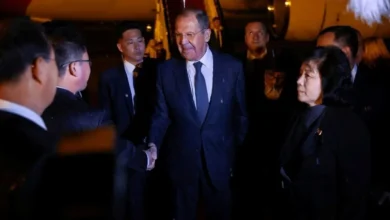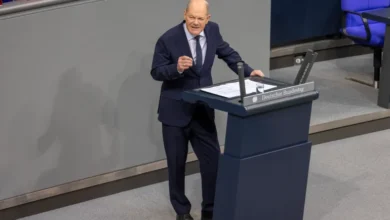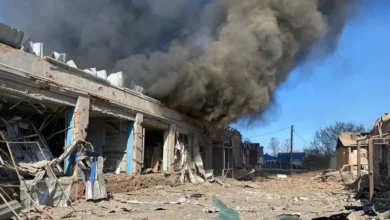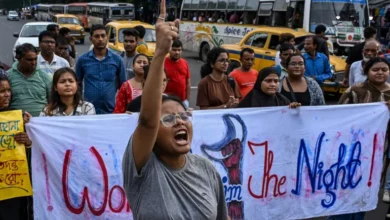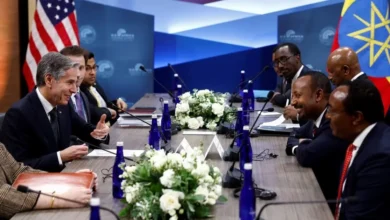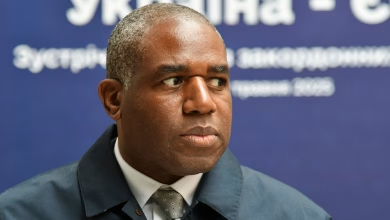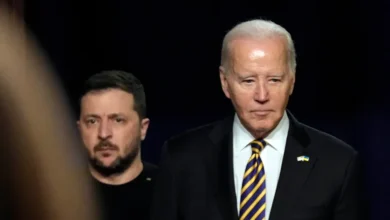‘Vindicated’: Columbia University’s Gaza protesters react as Shafik resigns
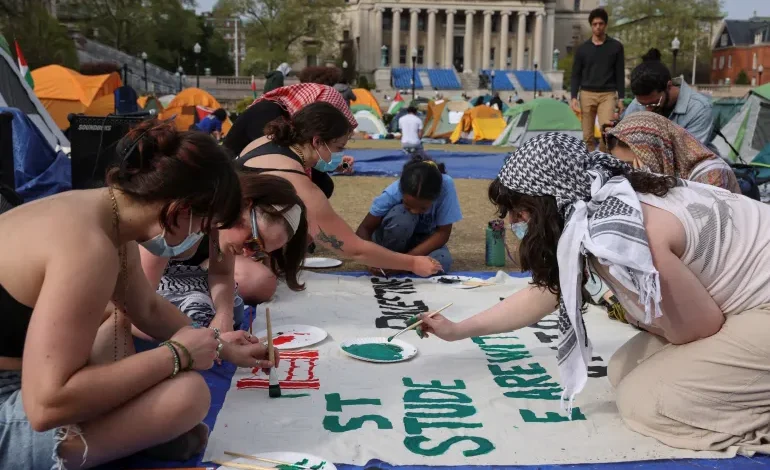
It was an abrupt departure for one of the Ivy League’s most embattled leaders: On Wednesday evening, Columbia University President Nemat “Minouche” Shafik announced she would resign, effective immediately.
The news was greeted with relief — and healthy dose of wariness — among student protesters, who believe Shafik’s brief tenure at the New York-based university will be defined by her harsh crackdown on anti-war demonstrations.
The departure prompted an array of emotions for 22-year-old Maryam Alwan. Among them, feeling “personally vindicated”.
Alwan had been among the students leading the protests last spring, as Israel’s war in Gaza caused the Palestinian death toll to surge.
Columbia’s students first erected a “Gaza solidarity encampment” on the campus in April, around the same time that Shafik appeared for a controversial anti-Semitism hearing before the United States Congress.
Their aim was to force Columbia to divest from any investments linked to Israel’s military campaign and call for a ceasefire. The camp was a vanguard: Similar protest camps soon dotted institutions of higher learning across the US and Canada.
Under Shafik, however, the Columbia administration called in police to break up the camp. Students also faced suspension and other punishments for their participation in the protest.
Following Shafik’s resignation, Alwan, who organises with the group Students for Justice in Palestine, said she was overcome with resolve. She plans to continue her fight for Columbia to divest from any investments that profit from the war.Change takes time though, Alwan added. She drew a comparison between the present-day events and earlier protests at Columbia against the Vietnam War.
“Columbia’s president in 1968 also belatedly resigned in August following a spring of intense protests,” Alwan said, “but it took much longer than that for the student body to achieve their goals”.
“The same will prove to be true in our generation’s enduring fight for justice and equality.”
A tumultuous tenure
Shafik’s resignation ended her brief but tumultuous tenure at the helm of the 270-year-old university. In her announcement, Shafik said she “tried to navigate a path that upholds academic principles and treats everyone with fairness and compassion”.
But for Carl Hart, a professor of psychology, Shafik’s 14 months in the role were marked by the erosion of principles he tries to teach to his students.
“Over my career, I’ve been teaching about standing up for folks who have less of a voice, about standing up against injustice. I implore my students and I ask them to use evidence to do this,” he explained.
“And then when they did it, they were punished.”
Hart added that, while administrators did engage in negotiations with protesters, they were punitive in their approach. The decision to call the New York Police Department twice — on April 18 and April 30 — to clear the encampment and remove protesters who had occupied a campus building put students and faculty at “unnecessary risk”, he said.
The psychology professor also criticised what he saw as disingenuous claims of anti-Semitism in the protests, shared by Shafik and the Columbia administration.
When Shafik was called to testify before the congressional committee on April 17, Hart felt she capitulated to lawmakers seeking to make political hay over the issue.
The hearing was entitled “Columbia in Crisis: Columbia University’s Response to Anti-Semitism” — and Congress members repeatedly accused students and professors of discriminatory actions.
Particularly stinging was Shafik’s open discussion of alleged actions by university faculty members during the hearing, which Hart said denied them due process.
“It was a violation of principles that we all hold near and dear, not only in academia but in this country,” he said.
In the days after the hearing, Shafik faced a vote of no confidence from the university’s Faculty of Arts and Sciences.
An oversight panel also rebuked the administration’s actions against the protesters as threatening academic freedom, but it stopped short of calling for Shafik to resign.
